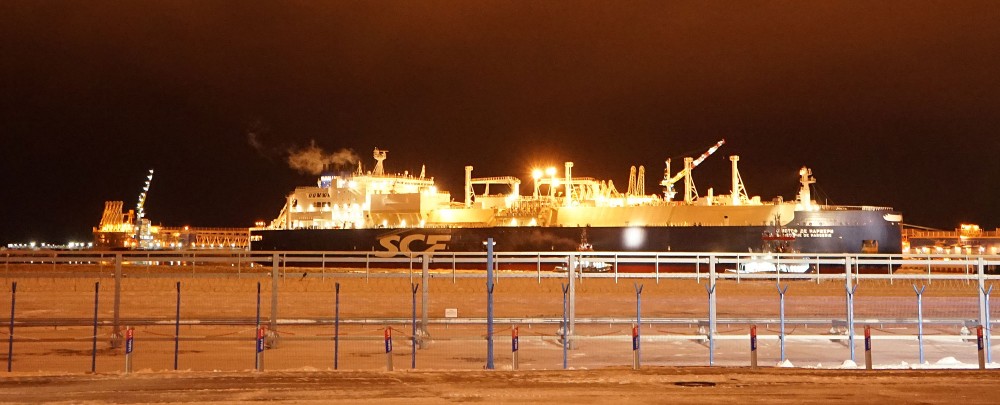Shipping volumes on the Northern Sea Route are up by more than 60 percent
Gas, oil and coal from Arctic projects make up the bulk of shipments on the route, while transits remain low.

Russia’s development of the Arctic shipping route is proceeding ahead of schedule. According to Rosatom, the state nuclear power company, shipping exceeded 26 million tons by Nov. 15.
That is an increase of more than 63 percent from the same period last year.
Shipping on the remote route could reach 30 million tons by the end of the year. In 2018, goods volumes totaled about 20 million tons.
The Northern Sea Route includes the waters between the archipelago of Novaya Zemlya and the Bering Strait, a distance of about 5,600 kilometers. It offers shippers a significantly shorter route Europe and Asia than through the Suez Canal.
New Russian industrial projects in the Arctic are behind the growth. The lion’s share of current shipments is LNG from Novatek’s natural gas installations in the Yamal Peninsula and oil from Gazprom Neft’s Novy Port project.
Meanwhile, transit shipments remain low. According to Rosatom, ships in the period brought 205,000 tons of goods across the route. A key part of it was shipped by Chinese shipping company COSCO.
According to Rosatom, shipping on the route is now ahead of schedules. There is still a long way to go before goods volumes reaches 80 million tons, the target set by President Vladimir Putin for 2024.
Rosatom believes it will be able to reach as much as 92.6 million tons by end of 2024.
According to the company, the figure includes 41 million tons of liquified natural gas from Novatek’s Yamal LNG and Arctic LNG 2. Included is also 17.5 million tons of oil, 5 million of it from the Vankor area, another 5 million from the Payakha field and 7.1 million from Novy Port. In addition comes a total of 23 million tons of coal, 19 million of it from the Taybass basin in Taymyr Peninsula and 4 million from the Syradasayskoye field.
Included are also eight million tons of goods to be delivered through the Northern Latitudinal Passage, the projected railway line that will be connected to Sabetta, the new sea port in Yamal.
The nuclear power company now plays a key role in the development of the Russian Arctic. In January 2019 it officially granted the leading role in the main development of infrastructure on the sea route.